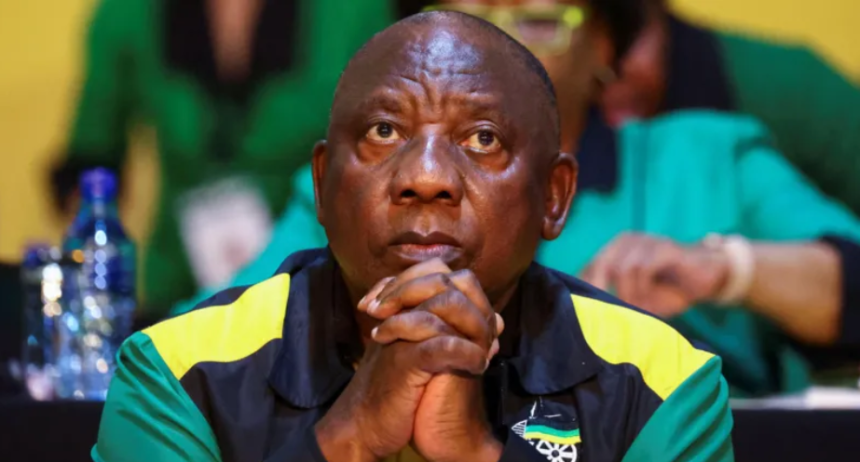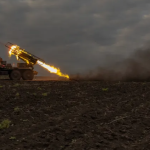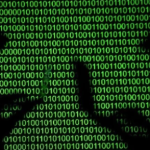South Africa’s President Cyril Ramaphosa faces increasing pressure following the ruling African National Congress (ANC)’s worst election result in 30 years, compelling the party to share power.
With nearly all votes from Wednesday’s poll counted, the ANC stands at 40%, a sharp decline from 58% in the previous election. This is even lower than the feared worst-case scenario of 45%, according to analysts.
Historically, the ANC has secured over 50% of the vote since South Africa’s first democratic elections in 1994, which saw Nelson Mandela become president. However, support has waned significantly due to widespread dissatisfaction over corruption, unemployment, and crime.
Highlighting these issues, one woman said that despite voting for the ANC for the past 30 years, she supported the center-right Democratic Alliance (DA) this time, citing the cost-of-living crisis and frequent power cuts.
Late on Saturday, the electoral commission announced that the full results would be released at 18:00 local time (17:00 BST) on Sunday. The commission also stated that all objections raised by various political parties would be reviewed, with recounts ordered if necessary.
Although South Africa employs a strict proportional representation system, giving a clear indication of seat allocation, the exact number of seats each party will have in the National Assembly will be confirmed with the final results.
The ANC leadership, including President Ramaphosa, is currently strategizing and preparing for complex coalition talks. The ANC’s coalition options include partnering with the DA, which holds 22% of the vote, or the uMkhonto weSizwe (MK) party, led by former President Jacob Zuma, which has 15%.
The radical Economic Freedom Fighters (EFF) secured 9%, and a coalition of the EFF and MK would fall just short of the required 50%.
The new parliament must be sworn in within two weeks of the final results, at which point the new president is typically chosen. Both the EFF and MK advocate for policies such as seizing white-owned land and nationalizing the country’s mines, which could alarm foreign investors.
The MK party has expressed willingness to collaborate with the ANC, but only if President Cyril Ramaphosa is not at the helm. Ramaphosa succeeded Jacob Zuma as president and ANC leader after a contentious power struggle in 2018.
According to Mr. Gaspard, the two politicians are “sworn enemies,” and Zuma now has the opportunity to “play kingmaker” if the ANC enters a coalition with his new party.
MK supporters celebrated overnight in Durban, the largest city in KwaZulu-Natal, the party’s stronghold. The MK party was only established in September.
ANC chairperson Gwede Mantashe indicated that forming an alliance with the DA is unlikely. He emphasized that coalition agreements require “policy alignment” between parties.
For the ANC, its black empowerment policies, designed to provide economic opportunities for black people historically excluded during apartheid, are “non-negotiable.”
Additionally, any coalition partner must support the National Health Insurance (NHI) Bill, which promises universal healthcare and was recently signed into law.
The DA opposes both the NHI and the ANC’s black empowerment policies. Despite the ANC’s reluctance, DA leader John Steenhuisen has not ruled out a coalition with the ANC.
However, he stated that any alliance would require adherence to several non-negotiables: respect for the rule of law and the constitution, a social market economy involving the private sector in growth, zero tolerance for corruption, and a focus on job-creating economic policies. Steenhuisen also mentioned the need to consult pre-election coalition partners before engaging in negotiations. He ruled out the EFF and the MK party as potential coalition partners.
John Steenhuisen expressed concerns about instability, saying, “A coalition with the radical left in South Africa, consisting of the MK party and the EFF, will lead to the same policies that destroyed Zimbabwe and Venezuela.
” This election saw a record 70 parties and 11 independents competing, with South Africans voting for a new parliament and nine provincial legislatures.
The DA has signed a pact with 10 parties, agreeing to form a coalition government if they secure enough votes to oust the ANC. However, this pact excludes the EFF and MK, whose support would be necessary to achieve a majority.
As parties scramble to form alliances, Kenya’s former President Uhuru Kenyatta, leading the African Union election observer mission in South Africa, advised that coalition governments should focus on areas of agreement rather than differences.
“I can only wish them well and hope that the leadership will take this decision by the people in a positive frame,” he said.
Patrick Gaspard, former US ambassador to South Africa (2013-2016), described the election results as a “moment of reckoning.
” He highlighted the frustrations of the Born Free generation—those born after the end of apartheid in 1994—who feel that while their country underwent a political transformation, it did not experience a corresponding economic transformation.
Gaspard noted that as early as 2015, it was clear that the ANC was on a downward trajectory due to its failure to deliver essential services, specifically citing the issue of rolling blackouts.



